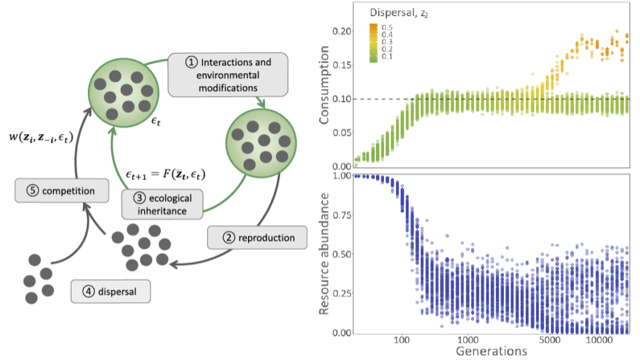Through consumption, pollution or engineering, organisms continuously modify their environment, often impacting the fitness of future conspecifics due to ecological inheritance. To understand the implications of such inheritance for trait variation, we model the evolutionary dynamics of traits in group-structured population, when traits affect the environment of a group that is then transmitted to the next generations. We have shown how ecological inheritance opens pathways for correlational selection to associate different ecologically relevant traits. In particular, selection favours the association between two traits when one affects the environment while the other influences the likelihood that future kin experience this environment. As an example, we modelled the joint evolution between (a) the attack rate on a local renewable resource, which deteriorates environmental conditions, with (b) dispersal between groups, which reduces the likelihood that kin suffers from such deterioration. We find this often leads to the emergence of two highly-differentiated morphs: one that readily disperses and depletes local resources (dispersive overconsumers); and another that maintains these resources and tends to remain philopatric (sessile scrimpers). In turn, the emergence of those two morphs leads to eco-evolutionary cycles between the frequency of each morph and the abundance of the resource they feed on.
Evolutionary dynamics of traits with lasting ecological effects
Iris Prigent

Relevant publications or preprints
-
The moulding of intra-specific diversity by selection under ecological inheritance
Iris Prigent and Charles Mullon Evolution, 2023.